Happy Birthday in Korean || PLUS Korean Age System Explained
How to Say Happy Birthday in Korean and Cultural Insights To Know
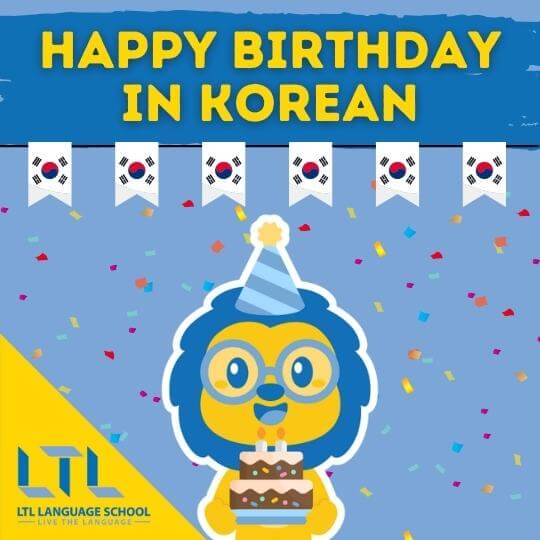
Today, we’re diving into Korean birthday traditions you should know!
Birthdays are a time for celebration—eating cake, singing songs, and maybe even enjoying a glass (or two) of soju. But in Korea, birthdays come with unique customs that make them extra special.
One surprising fact? Koreans traditionally don’t age on their birthday! Yes, you read that right.
In this post, we’ll explore the fascinating ways Koreans celebrate birthdays, from time-honored traditions to modern customs.
If you ever want to wish someone a happy birthday in Korean, the most common way is 생일 축하해요 (saeng-il chuk-ha-hae-yo) 🎂🥳
BUT this can depend on who you’re talking to and how polite you want to be. More details below…
Happy Birthday in Korean | Different Ways to Say Happy Birthday
Happy Birthday in Korean | Korean Age System
Happy Birthday in Korean | Food traditions
Happy Birthday in Korean | Special birthdays
Happy Birthday in Korean | Korean birthday song
Happy Birthday in Korean || Wishing Happy Birthday in Korean
Did you know there are a few different ways to wish someone a happy birthday in Korean?
It depends on who we are talking to – their age, connection to us and so on.
The most basic way to say happy birthday is:
생일 축하해요 (saeng-il chuk-ha-hae-yo)
or more formally
생일 축하합니다 (saeng-il chuk-ha-ham-ni-da).
This phrase can be used in most situations but if we go more into detail, we could assign specific phrases to specific situations that you might need!
To your close friends with whom you talk informally you could just say ‘i congratulate you with your birthday’ or 생일 축하해 (saeng-il chuk-ha-hae).
But be careful to only use it with people your age, younger or very close to you personally. If you want to be more polite, just add the syllable 요 (yo) at the end of the phrase.
By using a formal ending of a verb ㅂ니다/습니다 (mni-da/seu-mni-da) you could easily congratulate people worthy of your respect with the phrase 생일 축하합니다 (saeng-il chuk-ha-ham-ni-da).
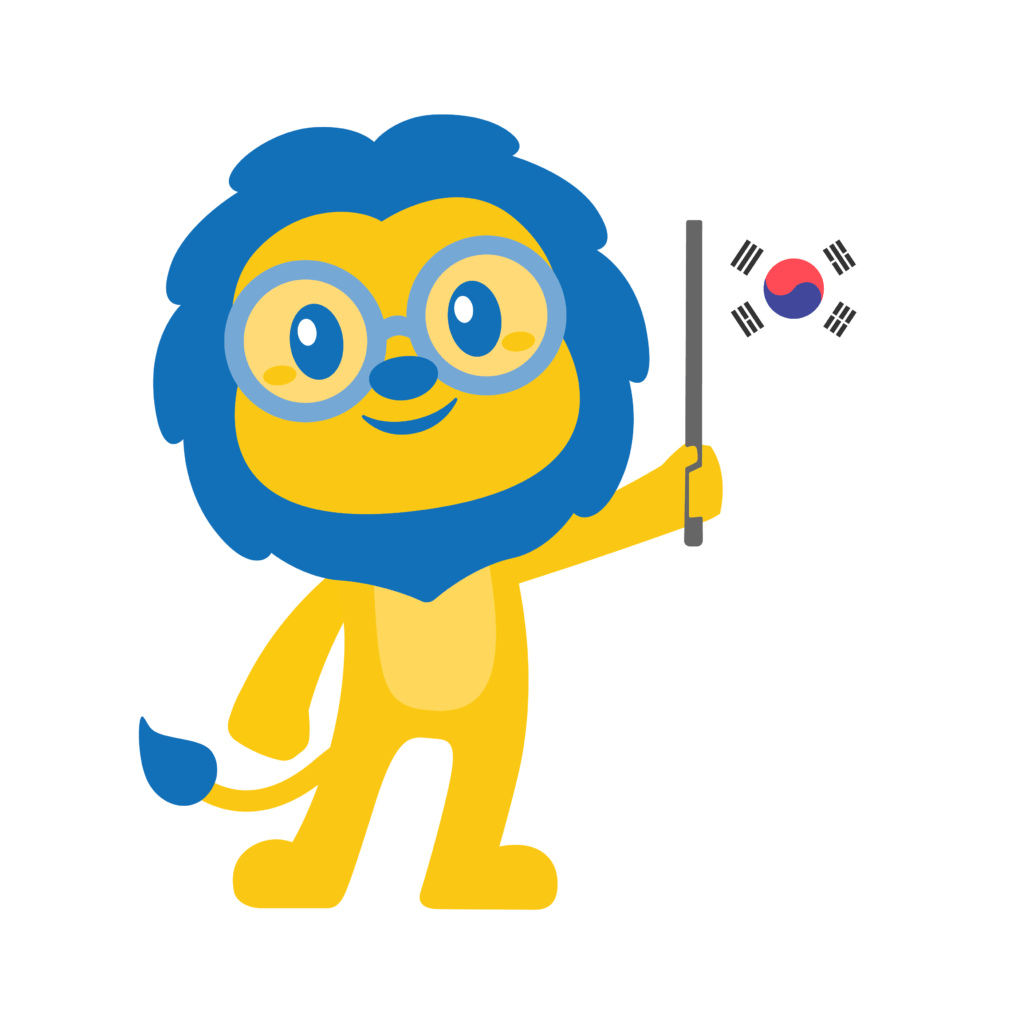
But to be extra formal you could use the following form: 생일 축하 드려요 (saeng-il chuk-ha deu-ryeo-yo), or literally ‘I give you my congratulations on your birthday’.
You could use this phrase with your teachers, seniors at work and so on. This phrase could also turn to a formal ending, like 생일 축하 드립니다 (saeng-il chuk-ha deu-rim-ni-da).
Would you like to be as formal and polite as you can be?
You would need the following to congratulate people much, much older than you, such as grandparents.
생신 축하 드립니다 (saeng-shin chuk-ha deu-rim-ni-da).
The meaning of this phrase is basically the same as those above. But the difference is that 생신 (saeng-shin) is an honorific way to say ‘birthday’.
| Korean | Romanisation | |
|---|---|---|
| To close friends | 생일 축하해 | saeng-il chuk-ha-hae |
| Basic sentence | 생일 축하해요 | saeng-il chuk-ha-hae-yo |
| Basic sentence (more formal) | 생일 축하합니다 | saeng-il chuk-ha-ham-ni-da |
| To seniors at work and teachers | 생일 축하 드립니다 | saeng-il chuk-ha deu-rim-ni-da |
| To older people (such as grand-parents) | 생신 축하 드립니다 | saeng-shin chuk-ha deu-rim-ni-da |
Happy Birthday in Korean || Korean Age System
There are a few things to know about Korean birthday traditions that will differ greatly from customs in Western countries.
First of all, we must remember that Koreans don’t age on their birthdays.
Rather, everyone is considered a year older on the New Year.
Since Koreans think age is very important in everyday life, getting a year older every New Year is considered more comfortable.
Everyone who was born in the same year as you are the same age, so you don’t need to use honorific language with them!
But still, Koreans like celebrating their actual day of birth.
On this day an intimate party is usually held with friends and family, where they share cake and sing birthday songs.
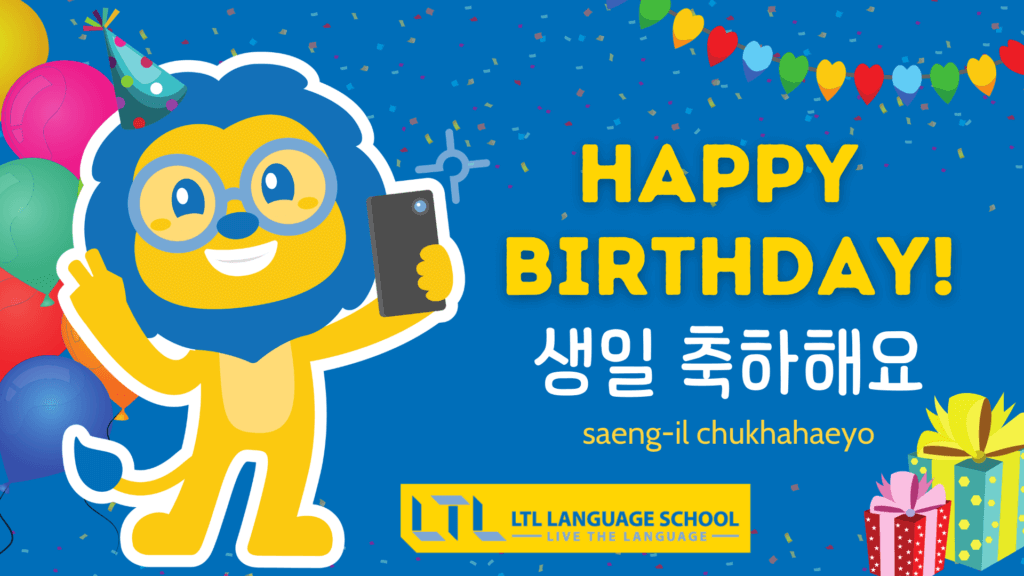
Happy Birthday in Korean || Birthday Food Traditions
Food, as in several countries (if not all), is at the centre stage of Korean culture.
First of all, since the New Year is considered everyone’s birthday, we should mention the tradition of eating 떡국 (tteokguk), rice cake soup, on this day.
By eating tteokguk, one proves that they’re a year older now.
As for the actual birthday food, there is another soup worth mentioning.
It’s a national tradition to eat 미역국 (miyeokguk), Korean seaweed soup, on your birthday.
Why seaweed soup you might ask?
This tradition goes a long way back. Since prenatal care (or 태교 taegyo) is very popular in Korea, pregnant ladies would eat miyeokguk to enrich their vitamins.
This soup is now a symbol of a mother’s love, caring for her child.
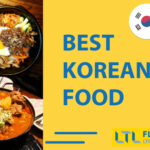
The Best Korean Food 🇰🇷 The Top 10 Korean Dishes for New Eaters to Try Out
There’s LOTS of various dishes in the Korean gastronomy. It might be hard to know what to try out first, so we selected the best Korean food for you to try.
Happy Birthday in Korean || Special Birthdays in South Korea
In Korean culture, some birthdays are more important to celebrate than others.
Let’s have a look at them:
백일 Baek-il (100th Day)
👉 백일
A baby becoming 100 days old is a big deal in Korea.
This tradition also goes back a long way, where many babies did not live for this long, partly because of poor medicine.
Therefore a baby surpassing 100 days meant it was healthy enough to continue living, so parents let out their anxieties on this day by celebrating the future of their child.
Today many parents share 떡 (tteok) (rice cakes) with others to celebrate this day.
돌 Dol (1st Birthday)
👉 돌
Dol, often called doljanchi, or the first birthday of a child is an important milestone.
Even today, the first birthday is a big celebration, not only in Korea but of course worldwide.
Parents put their baby in a traditional hanbok and invite their friends and family to enjoy the day together as well as a game of 돌자비 (doljabi).
Doljabi is a fun activity, where several items often associated with different professions are placed in front of a baby. Whatever item the baby chooses will show his future path.
The most common items used in doljabi are:
- A thread – symbolizing longevity
- A book/pencil – so baby will most likely become a scholar
- Money – meaning wealth, or a profession related to finances

Hanbok // The Complete Guide to the Traditional Korean Clothing
Hanbok is a traditional Korean clothing. Koreans wear it on important days, such as Seollal or weddings. Check out this article to know more about it.
환갑 Hwangap (60th Birthday)
👉 환갑
As important as it is for a newborn to surpass 100 days, for older people an equally important milestone is hwangap, or their 60th birthday.
Because of poor medicine and living conditions, reaching the age of 60 was considered impressive and worth celebrating.
This day is usually spent with family.
The celebration of hwangap is also linked to astrology since it takes exactly 60 years for the zodiac animal and the element under which a person was born to align again – symbolizing a full circle of life.
Although thanks to modern medicine, life expectancy has increased in Korea, some people prefer to celebrate 칠손 (chilson) (70th) or 팔순 (palsun) (80th birthday).
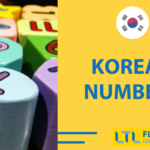
Korean Numbers // Discover the Two Numbering Systems Used (with Quiz)
There are two numbering systems in Korean. Native and Sino-Korean numbers. Both are not used in the same instances. We’ll teach you when to use them.
Happy Birthday in Korean || Happy Birthday Song in Korean
Now that we’re already familiar with all the ways we can wish someone a happy birthday, should we learn the birthday song too? I’m sure you know the melody!
Here are the lyrics for the Happy Birthday song in Korean:
생일 축하합니다
saeng-il chuk-ha-ham-ni-da
생일 축하합니다
saeng-il chuk-ha-ham-ni-da
사랑하는 (the name of your friend)
sa-rang-ha-neun (…)
생일 축하합니다!
saeng-il chuk-ha-ham-ni-da!
And that’s it for today’s lesson about Korean birthday traditions! Did you know all of them?
If like us you are passionate about languages, check out these birthday-related articles for other languages as well:
- Wishing a Happy Birthday in Chinese
- Wishing a Happy Birthday in Vietnamese
- Wishing a Happy Birthday in Japanese
- Wishing a Happy Birthday in Russian
Happy Birthday in Korean || FAQs
How to say Happy Birthday in Korean?
The most basic way to wish someone a happy birthday in Korean is 생일 축하해요 (saeng-il chuk-ha-hae-yo).
If you are wishing it to a friend, you can drop the 요: 생일 축하해
If you are wishing it to people worthy of your respect you can use the phrase 생일 축하합니다 (saeng-il chuk-ha-ham-ni-da)
What do Korean people eat on a birthday?
First of all, since the New Year is considered everyone’s birthday, there is a tradition of eating 떡국 (tteokguk), rice cake soup, on this day.
By eating tteokguk, one proves that they’re a year older now.
As for the actual birthday food, there is another soup worth mentioning.
It’s a national tradition to eat 미역국 (miyeokguk), Korean seaweed soup, on your birthday.
Is it true that Korean people don’t age on their birthday?
Indeed, Koreans don’t age on their birthdays.
Rather, everyone is considered a year older on the New Year.
Since Koreans think age is very important in everyday life, getting a year older every New Year is very comfortable.
Everyone who was born in the same year shares the same age, so you don’t need to use honorific language with them!
But still, Koreans like celebrating the day of birth.
On this day an intimate party is usually held with friends and family, where they share cake and sing birthday songs.
Why is the 100th Day birthday so important in South Korea?
A baby becoming 100 days old is a big deal in Korea.
This tradition comes from back in the day, where many babies did not live for this long, partly because of poor medicine.
Therefore a baby reaching 100 days meant it was healthy enough to continue living, so parents let out their anxieties on this day by celebrating the future of their child.
Want More From LTL?
FANCY LEARNING KOREAN? Check out our online Korean courses here.
We offer a 7-day free trial to all online students where you can study Korean 24/7.
Want to study Korean in Korea instead? Our Korean courses in Seoul can either be taken in small groups of no more than 5 students or individually for a more tailored experience.
We even offer incredible homestay experiences in Seoul too.
To top it all off, it certainly doesn’t end with Korean. Check out the other languages we teach 👇🏻








